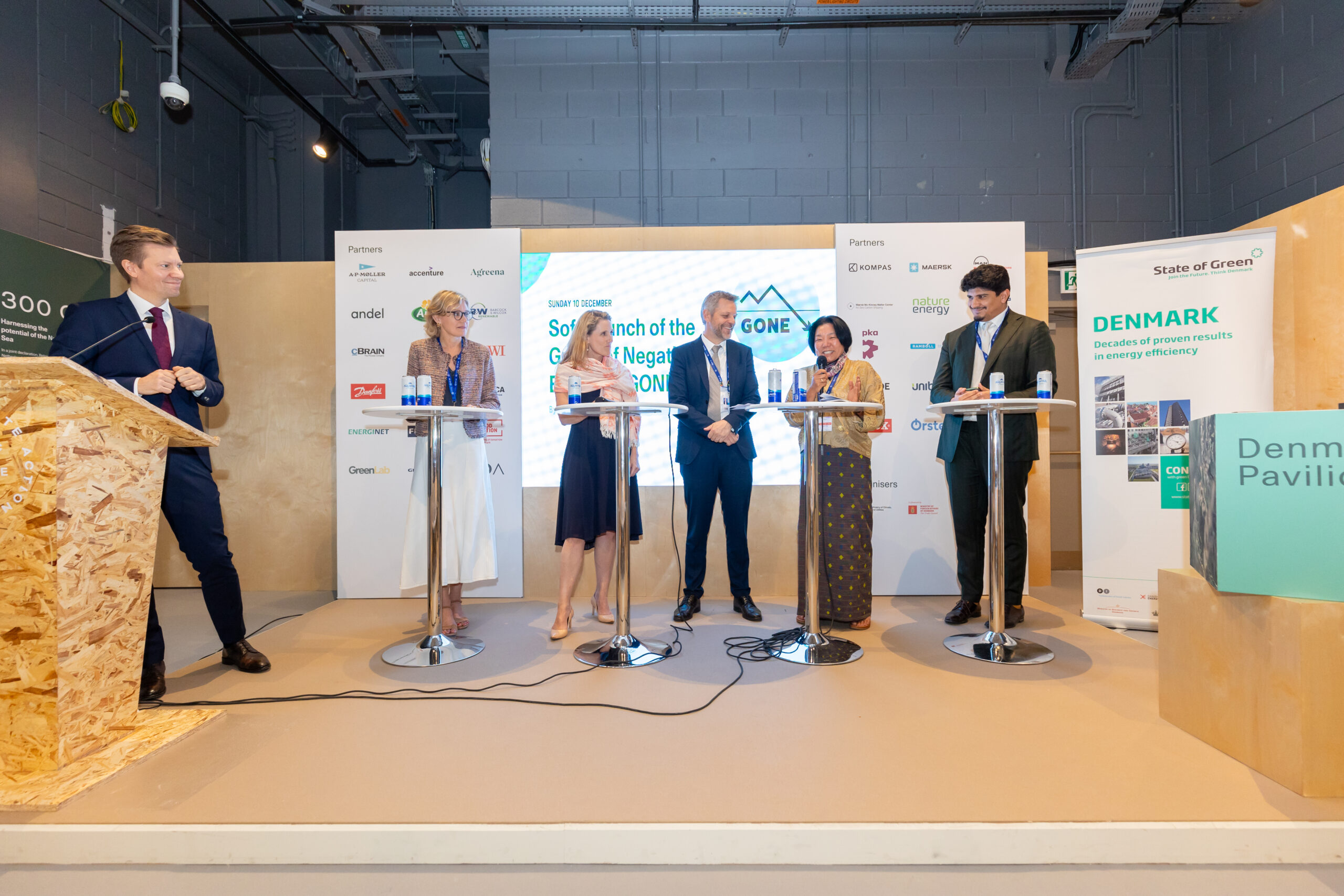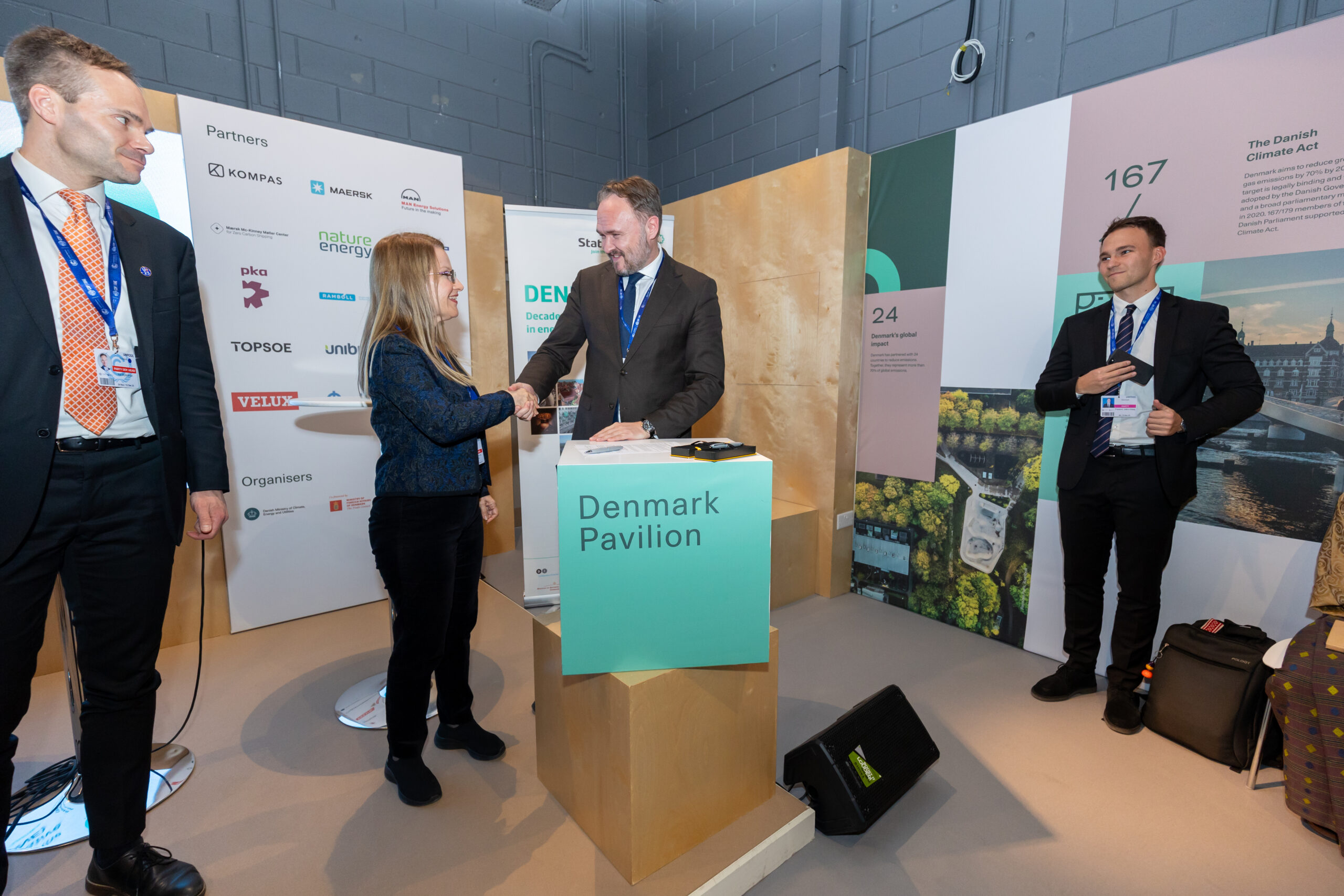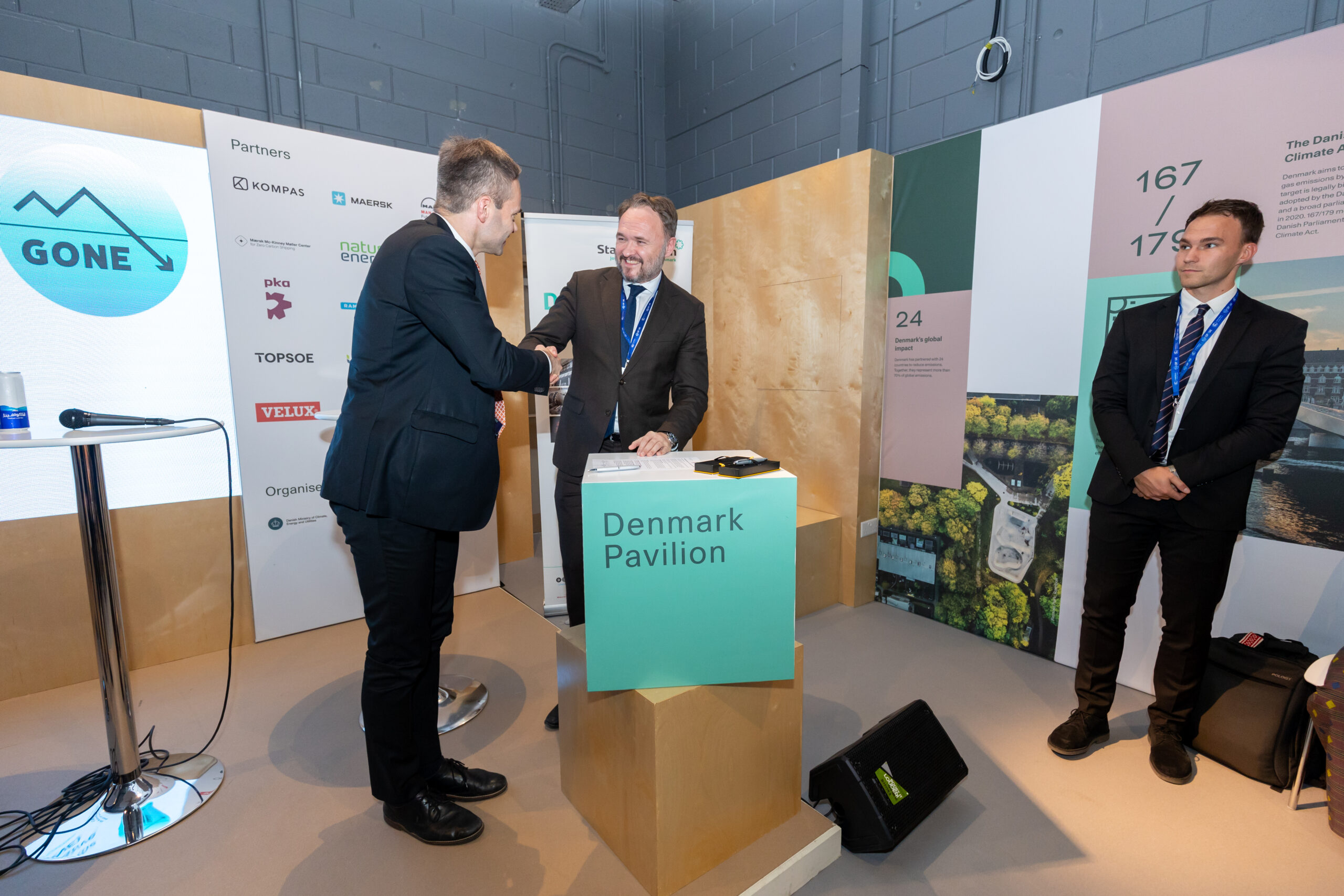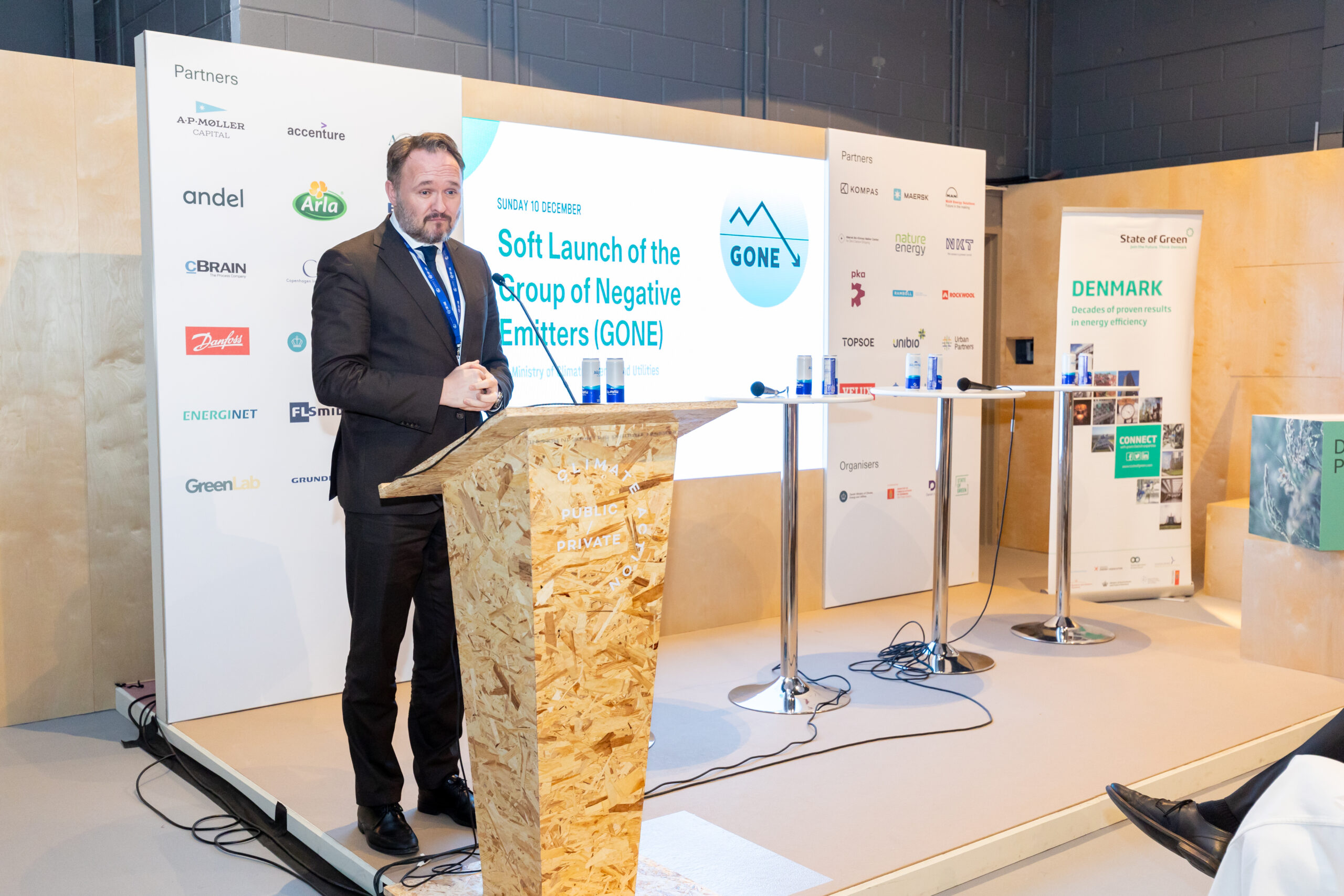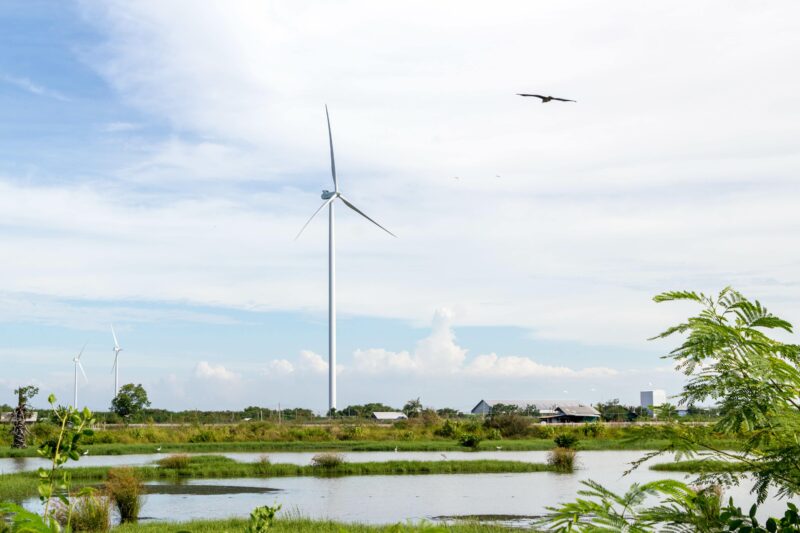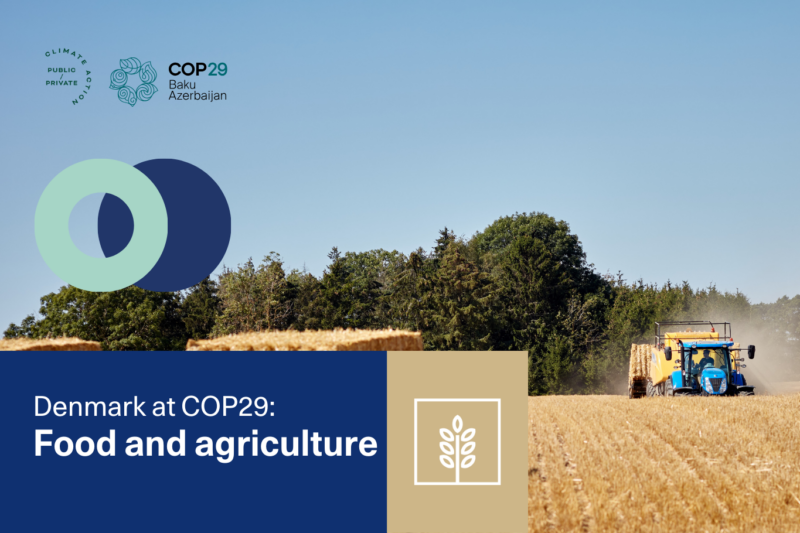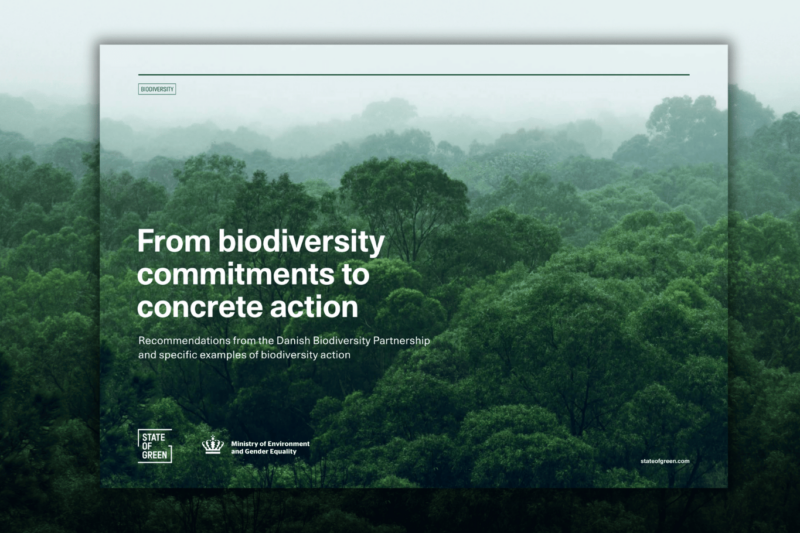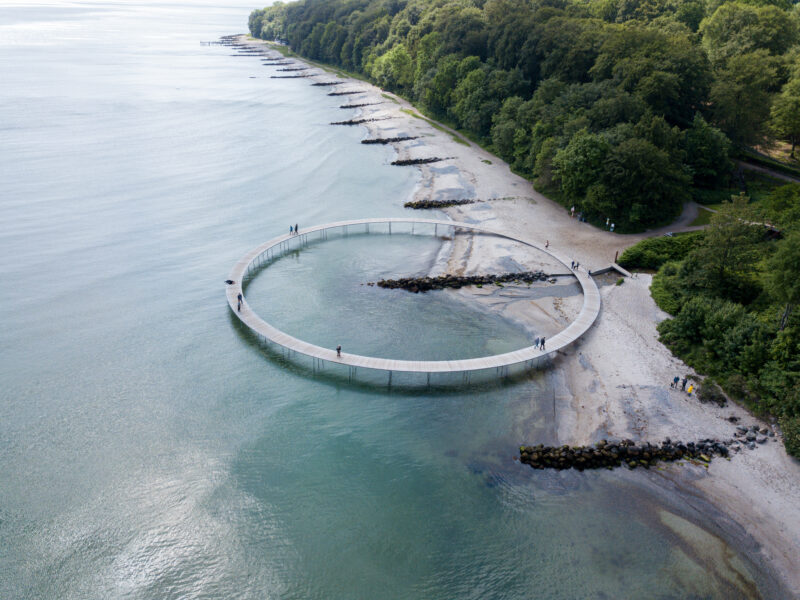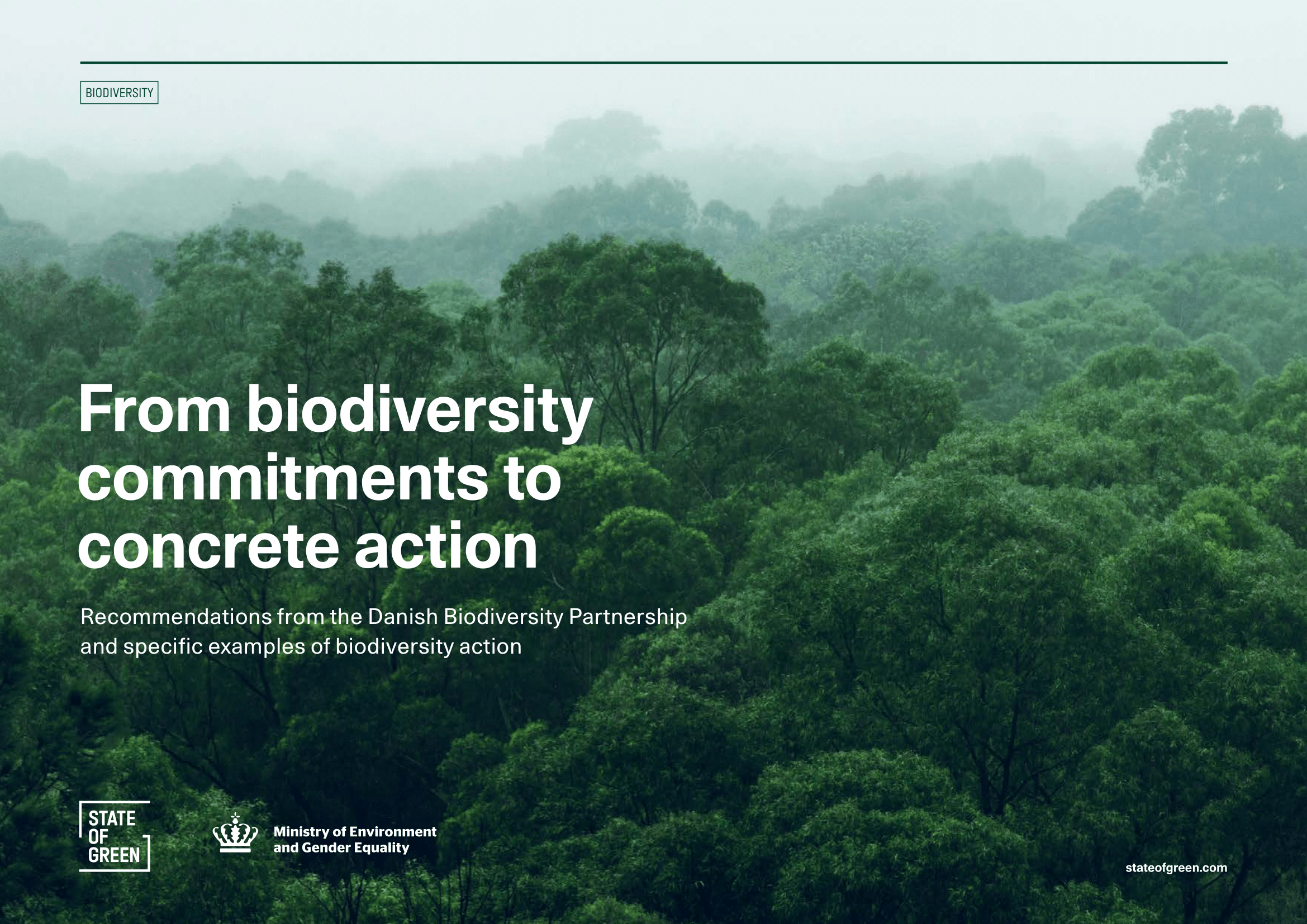News
Climate COP
Biogas
Biomass
+23
COP28: New global alliance to advance negative emissions
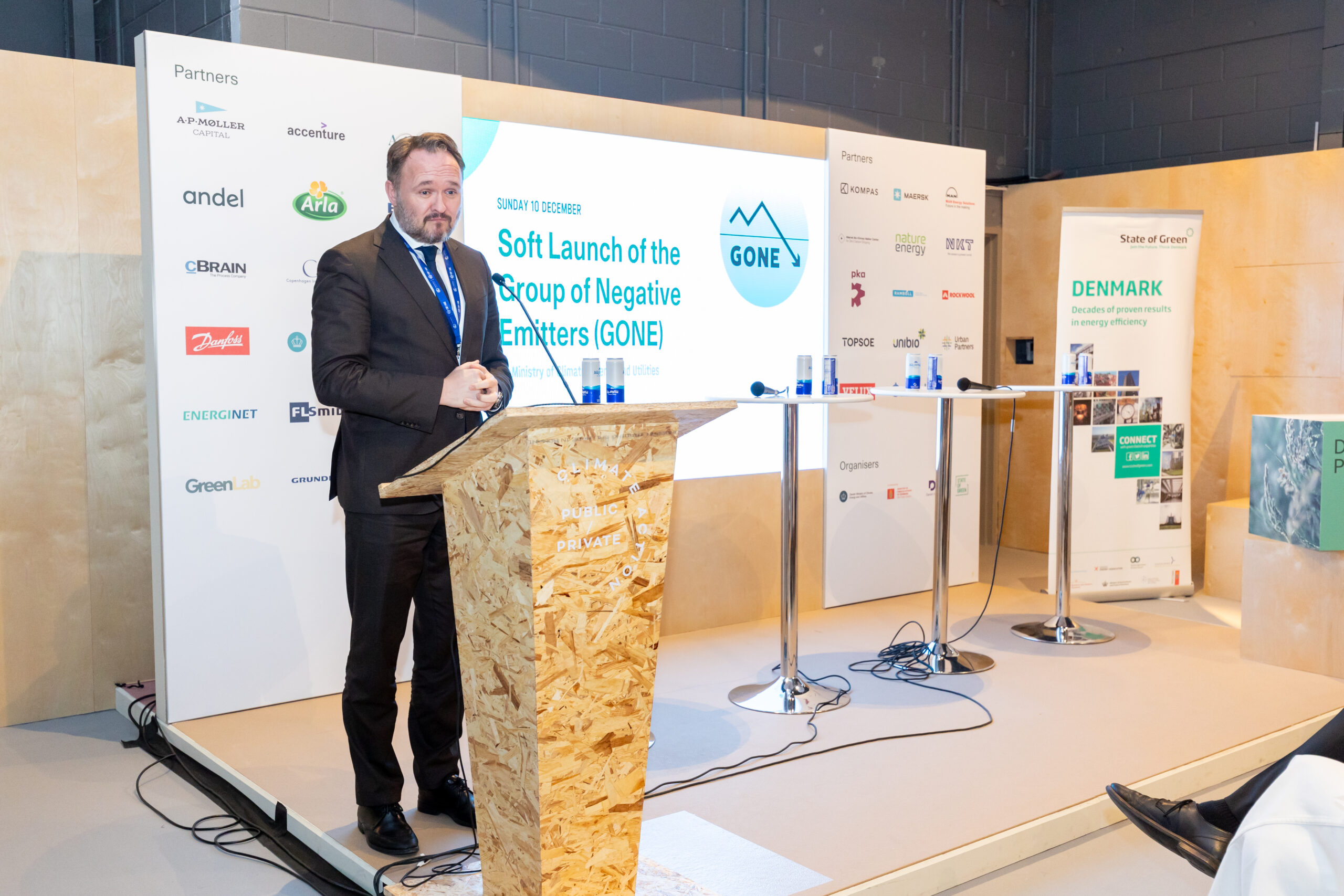

Launched at COP28 on 10 December, a newly formed Danish-led Group of Negative Emitters (GONE) will actively work towards encouraging countries to set more ambitious goals, aiming to achieve emission reductions of over 100% thereby making them net-negative.
“With GONE, we show that climate neutrality doesn’t need to be the ultimate goal. Rather, GONE’s members aspire to absorb more greenhouse gases than they emit. It’s more than just a political statement; it’s a step change in our approach to the climate crisis,” says Minister for Development Cooperation and Global Climate Policy, Dan Jørgensen, who launched the alliance at the UN Climate Summit, COP28, in Dubai.
The founding members of the alliance, namely Denmark, Panama, and Finland, share the commitment to remove more CO2 from the atmosphere than they emit. Some countries, such as Panama, are already doing this, while others – including Denmark and Finland – have set clear targets to achieve it.
Speaking at the event held at the Denmark Pavilion were also representatives from Bhutan, the EU Commission, the World Resources Institute, UN Environmental Programme and the Coalition for High Ambition Multilevel Partnerships. These speakers all endorsed the new alliance and spoke from different perspectives on the importance of achieving negative emissions.
The initiative responds to the latest scientific reports emphasizing the need to intensify efforts to meet the Paris Agreement’s temperature goals. GONE will collaborate with existing global initiatives and alliances to encourage knowledge sharing and create a global effort to strengthen and expedite developments in negative emissions.
At the onset, the primary focus will be to urge countries to include negative emission targets in their national climate targets, to be formulated and submitted before COP30 in 2025. Setting the course for negative emissions in the coming years is crucial, as developing the necessary tools to significantly reduce greenhouse gas levels and keep global temperature increases within the 1.5-degree target will take time.
